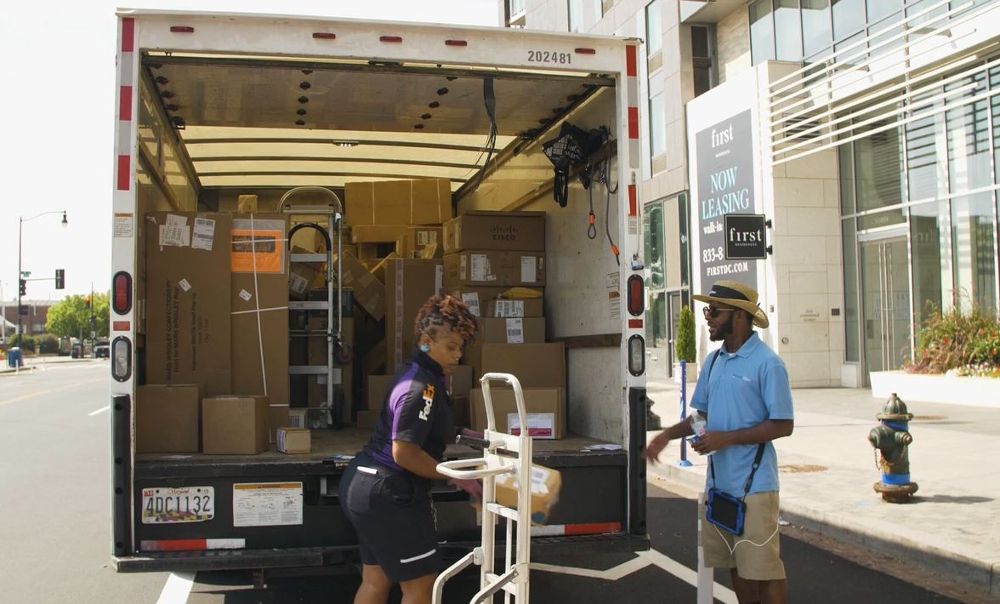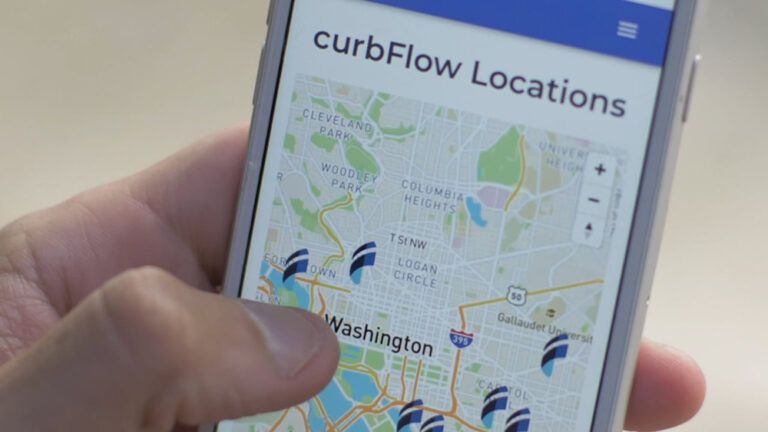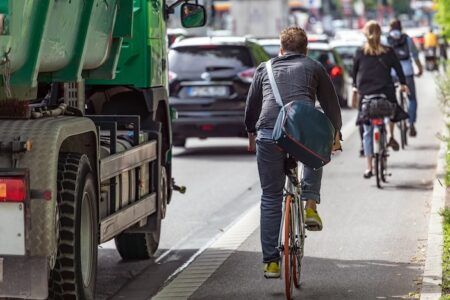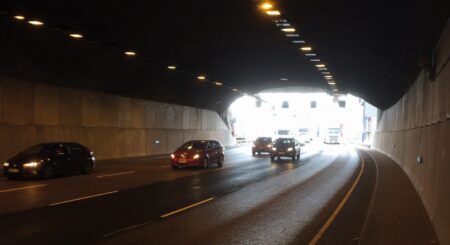The District Department of Transportation (DDOT) in Washington DC has released highlights from a three-month kerb management partnership with mobility company curbFlow that led to safer and more productive streets and an overwhelmingly positive reaction from drivers.
During the program, which ran from August 1 through October 30, curbFlow coordinated commercial and on-demand operator pickup and drop-off (PUDO) activity to available kerb space in real-time at nine locations throughout the District. The curbFlow loading zones, which provided operators with new, reliable access to the kerb, were chosen based on operator-provided pickup/drop-off data. The program provided loading zone access to commercial vehicles and private vehicles operating in a commercial manner, such as picking up for an online food delivery service or other online delivery platform. Drivers registered using the curbFlow app where they either checked in on arrival or reserved space up to 30 minutes in advance. Commercial operators that participated included larger companies like DoorDash, Grubhub, UPS, and hundreds of small and medium-sized local companies.

The research study conducted by curbFlow, a mobility company that coordinates commercial operator PUDO at the kerbside in real-time, builds on DDOT’s efforts to improve the safety of on-street activity. Highlights from the research project include:
- Drivers from more than 900 different companies registered;
- More than 6,350 drivers registered altogether;
- On average, more than 350 registered drivers used the program daily (over 15,500 uses total);
- 1,300 advance reservations were made and used;
- Incidents of double parking and illegal U-turns decreased by an estimated 64% in immediate proximity to the curbFlow PUDO zones;
- On-demand delivery, freight and parcel deliveries lasted an average of 7-11 minutes, while rideshare and taxi pickup and drop-off activity lasted less than two and a half minutes on average;
- On-demand deliveries were the most frequent use of the kerbside space, followed by freight and parcel deliveries;
- 85% of surveyed drivers rate curbFlow as a 9 or 10 on likely to recommend.
Following the success of the curbFlow project, DDOT has launched a new application process for researchers and innovators seeking to conduct research on the city’s streets.
“In a dynamic city like the District, we are always looking for cutting edge solutions to improve safety, reduce traffic congestion, and achieve Mayor Bowser’s goal of being a leader in public sector innovation,” said DDOT’s director, Jeff Marootian. “Through this partnership with curbFlow, we collected critical data that will inform the next generation of policies, plans, and strategies that we employ to better manage the demand at the kerbside.”
Ali Vahabzadeh, curbFlow’s founder and CEO, commented, “New demands on the kerb have led to frustrating street conditions, but the good news is that by bringing stakeholders together to manage kerb space in a coordinated way we can make streets safer and more productive. What we saw in DC is that having reliable, real-time access to the kerb has a major impact on the ability of people to move around the city efficiently and that collaboration can help ease these transportation challenges, making life better for drivers, merchants, cyclists and pedestrians.”





